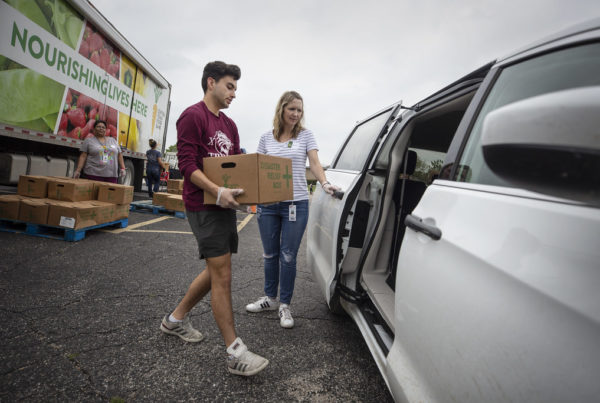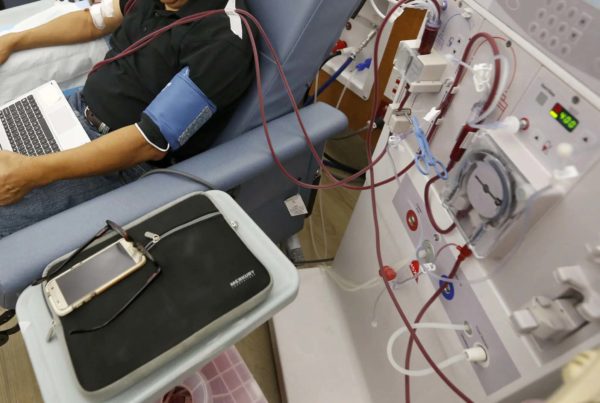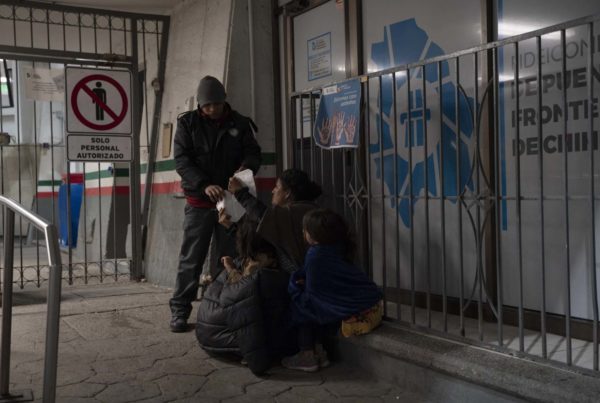The lingering effects of the COVID-19 pandemic are still being felt in a variety of arenas including long-term health, learning losses and impacts on our financial systems. Another area that has been drawing attention: kids and mental health.
New data from Texas Children’s Hospital in Houston shows that the number of kids seeking ER care for a mental health crisis has jumped 800% since before the pandemic, a shift hospital officials say is reflective of national trends.
Anna Bauman wrote about this report for the Houston Chronicle and joined the Texas Standard to talk about the driving forces behind the spike and what is being done about it. Listen to the story above or read the transcript below.
This transcript has been edited lightly for clarity:
Texas Standard: First, when healthcare officials say these children are coming to the ER with a mental health crisis, what specifically are we talking about there?
Anna Bauman: So we know that if someone’s going to the emergency department for care, their situation is pretty severe, so these numbers include a range of behavioral health crises– that can be children and adolescents presenting with suicidal ideation, suicide attempts, and there is also an increase among kids presenting with aggressive behavior, especially among young people with developmental disabilities.
You spoke with Dr. Karin Price, who’s the chief of psychology at Texas Children’s. What did she say about this dramatic increase?
So a lot of this has contributed to the pandemic, so we know that the demand for youth mental health services was already increasing pre-pandemic, and then, of course, the pandemic came along and really exacerbated a lot of stress on all of us, but particularly on the vulnerable kids and teenagers who are really in their developmental years. So there were, you know, a number of factors that might have contributed to poor mental health outcomes. You know, just the isolation that everyone was experiencing, a change in their routine and schedules, grief and loss for some kids.
So across the board, according to Dr. Price, Texas Children’s has seen high demand at all access points into their system, including more kids waiting for outpatient services, more kids and parents coming into their pediatrician’s office or their primary care provider and bringing up concerns about depression or anxiety, for example. So really, she just spoke about the high, high demand and overwhelming need.
That’s an important point to make, because when someone talks about the ER setting – when a young person is admitted to the ER with a mental health emergency – if you don’t have the follow-up options, you know, with treatment facilities booked up, a child can stay in the ER for a long time, potentially exacerbating underlying conditions and if there aren’t, you know, follow-up and ongoing treatment options. Which points to the issue of a shortage of mental healthcare services and support for these young people.
Right, and that’s a good point. You know, that is part of what’s exacerbating this. Of course, we don’t want kids to end up in the emergency room in the first place for mental health crises. You know, they should, of course, seek help if they’re in crisis, but we don’t want them to get to that point. So a number of mental health professionals and experts who I spoke with about this recommend that parents take their kids in for regular routine care at the pediatrician’s office where they might do some mental health screening.
So the U.S. Preventative Services Task Force actually recommends primary care physicians screen all kids starting at age eight for anxiety, and this can help, you know, just catch those kids early on. Maybe they don’t want to bring up what they’re struggling with to a parent or a family member. Sometimes they might not know or understand what they’re dealing with, but a doctor is able to kind of spot those early warning symptoms — get them help before it really escalates into a bigger problem.















